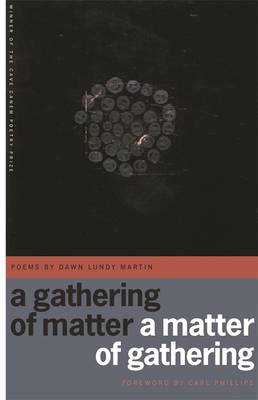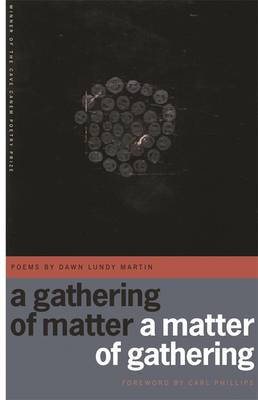
Bedankt voor het vertrouwen het afgelopen jaar! Om jou te bedanken bieden we GRATIS verzending aan op alles gedurende de hele maand januari.
- Afhalen na 1 uur in een winkel met voorraad
- Gratis thuislevering in België
- Ruim aanbod met 7 miljoen producten
Bedankt voor het vertrouwen het afgelopen jaar! Om jou te bedanken bieden we GRATIS verzending aan op alles gedurende de hele maand januari.
- Afhalen na 1 uur in een winkel met voorraad
- Gratis thuislevering in België
- Ruim aanbod met 7 miljoen producten
Zoeken
Prijzen
Omschrijving
Dawn Lundy Martin's work is neither language poetry, which rejects the speaking subject, nor strictly lyric, which embraces the speaking "I." It might best be described as poetry where, in the words of Juliana Spahr, "the lyric meets language"--both an investigation into the opacity of language and the expression of a passionate speaker who struggles to speak meaningfully.
Martin's poems bend the form into something new, seeking a way to approach the horrific and its effect on the psyche more fully than might be possible in the worn groove of the traditional lyric. Her formal inventiveness is balanced by a firm grounding in bodily experience and in the amazing capacity of language to expand itself in Martin's hands. She explodes any pretense at a world where words mean exactly what we want them to mean and never more nor less. The poems are neither gentle nor easy, but they make a powerful case that neither gentleness nor easiness is appropriate in the attempt to contend with the trauma and violence that are an inescapable part of human history and human experience. Martin's book acknowledges the difficulty but not the impossibility of utterance in trauma's wake, and it ventures into the unimaginable at many levels, from the personal to the cultural.Specificaties
Betrokkenen
- Auteur(s):
- Uitgeverij:
Inhoud
- Aantal bladzijden:
- 72
- Taal:
- Engels
- Reeks:
Eigenschappen
- Productcode (EAN):
- 9780820329918
- Verschijningsdatum:
- 1/10/2007
- Uitvoering:
- Paperback
- Formaat:
- Trade paperback (VS)
- Afmetingen:
- 137 mm x 211 mm
- Gewicht:
- 90 g

Alleen bij Standaard Boekhandel
+ 58 punten op je klantenkaart van Standaard Boekhandel
Beoordelingen
We publiceren alleen reviews die voldoen aan de voorwaarden voor reviews. Bekijk onze voorwaarden voor reviews.













